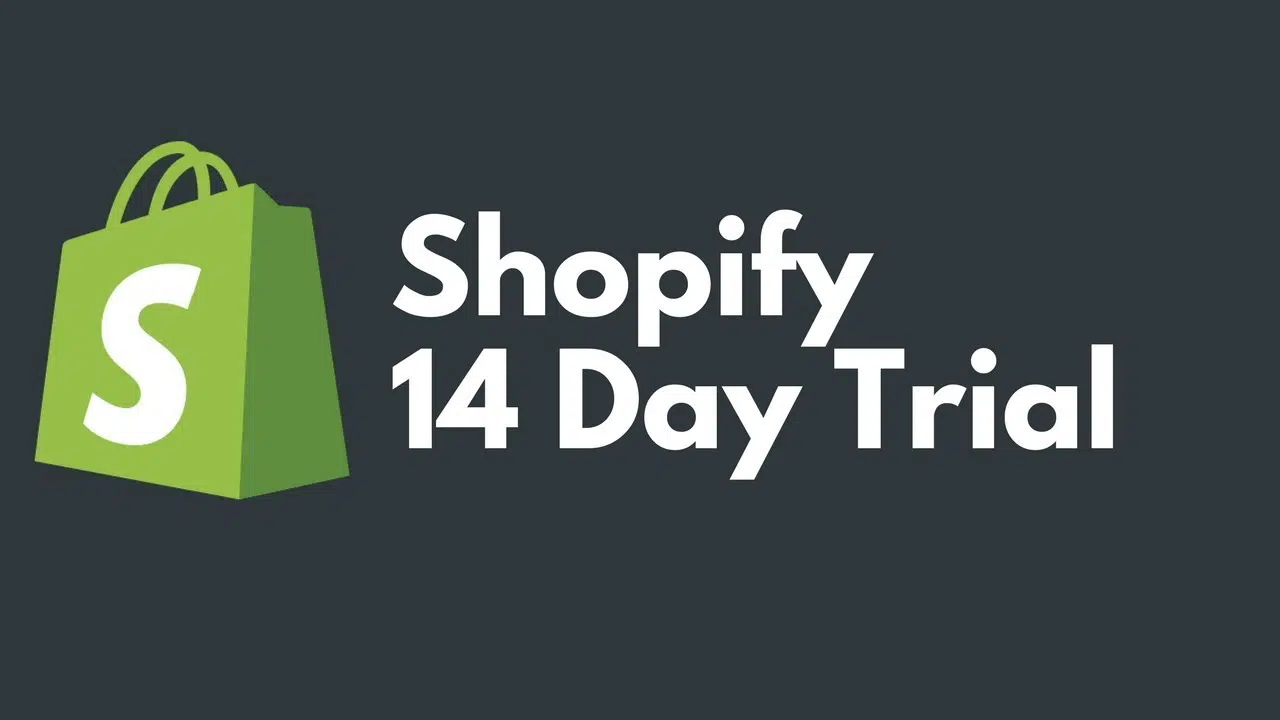In the age of digital commerce, having an enterprise ecommerce platform is a necessity for large businesses in order to remain competitive and meet consumer demands. When selecting the right one, select the right one. It can be difficult given all available options on the market. From inventory management & orders through to incorporating customer relationship management software or third-party apps, best enterprise ecommerce platforms are essential for successful online business operations, the market and enterprise brands so making sure you choose correctly is paramount!
- Key Takeaways
- Navigating the World of Enterprise Ecommerce Platforms
- Essential Features of Top Enterprise Ecommerce Platforms
- Evaluating the Best Enterprise Ecommerce Software Options
- Spotlight on Leading Enterprise Ecommerce Solutions
- Headless Ecommerce: A Future-Focused Approach
- The Cost Factor: Budgeting for an Enterprise Ecommerce Solution
- Enhancing Ecommerce Functionality with Add-Ons and Extensions
- Mastering Multichannel Sales with Enterprise Platforms
- Mobile Commerce: Optimizing for the On-the-Go Consumer
- Deciding on the Right Enterprise Ecommerce Platform
- Summary
- Frequently Asked Questions
Key Takeaways
- Enterprise ecommerce platforms are vital for large businesses, providing a range of options like hosted, licensed, open-source, and SaaS platforms, each having its own benefits and considerations for customization, scalability, and integration.
- Selecting the right enterprise ecommerce platform requires evaluating essential features such as advanced inventory and order management, CRM integration, third-party integration capabilities, security measures, and support services.
- Salesforce Commerce Cloud, Adobe Commerce (Magento), and Oracle CX Commerce are highlighted as leading enterprise ecommerce solutions, each offering distinctive features to cater to enterprise-level needs, including scalability, security, and customizability.
Navigating the World of Enterprise Ecommerce Platforms

Enterprise ecommerce is essential to the success of larger businesses in today’s digital commerce world. Platforms play a major role and must provide customers with a seamless shopping experience by handling both frontend sales as well as backend operations. There are various platform types available, ranging from hosted platforms (SAP Commerce Cloud) to open-source ones. Each offering unique advantages & drawbacks that you should be aware of before deciding which one suits your business objectives best. A fully hosted ecommerce platform solution like SAP can give necessary flexibility & scalability for enterprises looking at longterm growth or expansion into new markets. Though customization may not reach the level provided by an open source option, it’s important to understand all nuances while selecting an enterprise platform that fits your needs perfectly.
Essential Features of Top Enterprise Ecommerce Platforms

When choosing the most suitable enterprise ecommerce platform for your business, there are several core functions to consider. These include features such as efficient inventory and order management capabilities along with CRM system integration which will allow you to seamlessly incorporate external applications into your setup.
Not only do these essential elements simplify operations, but also offer customers an enhanced shopping experience when using your ecommerce platform.
Inventory and Order Management Mastery
For a successful ecommerce platform, it is crucial to have an effective inventory and order management system in place. OroCommerce offers advanced technology that allows for the efficient monitoring of stock levels between multiple storefronts and warehouses along with customizable product catalogs tailored to meet enterprise-level businesses’ needs. This enhances their ability to plan, allocate resources effectively while ensuring precise deliveries across various channels.
Enterprises can use this tech solution’s custom pricing feature as well, which provides flexibility in creating personalized offerings based on different customer segments or markets. Thus optimizing sales strategies by utilizing stock more optimally. All these factors come together to make sure your business thrives!
Customer Relationship Management (CRM) Integration

The integration of Customer Relationship Management (CRM) into ecommerce platforms has become a necessity in today’s customer-driven business landscape. It allows companies to efficiently manage their relationships and knowledge, creating better operational outcomes as well as an enhanced understanding of customers’ needs. What is the role that CRM plays when it comes to improving the customer experience?
By integrating tools such as improved promotion/marketing capabilities, aided sales team performance, facilitated collaboration & segmentation functions plus allowing access to pertinent information which optimizes time management (along with utilizing payment data for order processing across centralized social media interactions), all this results in customized shopping experiences built on strong consumer relations while boosting client satisfaction overall.
Seamless Third-Party Integrations
When it comes to enterprise ecommerce, third party integrations are essential for maximizing operational efficiency and enhancing the platform’s overall offerings. Common integrations used in enterprise ecommerce system include Enterprise Resource Planning (ERP) systems, Warehouse Management Systems (WMS), Product Information Management systems (PIM), Customer Relationship Management solutions such as Salesforce Revenue Cloud or HubSpot Sales hub, Digital Experience Platforms (DXPs), Marketing Automation Platforms (MAP), and Content management systems on frontend applications.
Before integrating any of these services into an existing platform, careful planning must be undertaken so that a comprehensive list can be created in order to have a successful integration process. This typically includes tools like CPQ, payment gateways which facilitate payments within your store along with shipping gateways amongst other marketing techniques like MailChimp, Klaviyo or Campaign Monitor etc.
Integrating these types of tools can improve customer experience while improving business operations across the board allowing you to stay competitive in today’s market place while leveraging unique features offered by different third-party providers.
Evaluating the Best Enterprise Ecommerce Software Options
In order to select the right types of enterprise ecommerce and software, it is important to look at several key factors. These include scalability in order to manage increased orders and visitors, security protocols for protecting customer data as well as transactions, and support services guaranteeing smooth operations of your online store.
We shall now take a more thorough examination of these considerations.
Scalability for Business Growth

When it comes to enterprise ecommerce software, scalability is a key factor. This ensures the platform can cope with growth in order volumes and traffic without compromising on flexibility or reliability. Resulting in efficient customer service and additional income for businesses. To evaluate an enterprise ecommerce business in-store’s scale potential, factors such as its capacity to manage peak visitors, larger stock quantities and heightened orders need careful consideration. Solutions like investing into inventory management systems paired with resilient online commerce platforms are recommended methods of achieving scalable success for your business ventures.
Security Measures for Protecting Customer Data
For any ecommerce platform in this time of frequent cyberattacks and data breaches, security is a necessity. Ensuring the safety of your system is key for maintaining customer trust by protecting their information. A safe framework must feature an extensive selection of safeguards such as SSL certificates, PCI compliance measures like firewalls and malware protection solutions, as well as user authentication methods along with backup operations to ensure secure transactions are conducted while customers’ details remain protected.
To Reinforce security on an ecommerce platform, best practices should be followed, including selecting a reliable software solution provider, introducing SSL encryption features, and employing two-factor verification techniques. Setting up Virtual Private Networks (VPN), providing employees training so they have knowledge about how threats can arise and affect your business processes and systems, creating plans that explain when certain parts need to be encrypted or decrypted successfully plus conducting consistent scrutiny procedures which examine suspicious activity on account logins etc. This will help strengthen total network defense across every facet.
Support and Services: The Backbone of Your Online Store
For the ecommerce features of an online store to be successful, it must possess scalability and security with various support and services. An ideal ecommerce platform should include customisable templates, seamless integration for core business tools, user experience personalisation features as well as advanced analytics capabilities. Comprehensive B2B functionalities also play a crucial role in the success of enterprise ecommerce platforms.
To ensure optimal functioning throughout the replatforming process for enterprises that use these solutions, they provide such support: 24/7 customer service, live chat integration feature, order tracking & updates options, product management expertise plus personalized onboarding facility, even catalogue transfer services are offered by top-tier enterprise ecommerce providers.
Spotlight on Leading Enterprise Ecommerce Solutions

Enterprise-level businesses seeking the best enterprise ecommerce platforms should look no further than Salesforce Commerce Cloud, Oracle CX Commerce and Adobe Commerce (Magento). These robust solutions boast a number of features that meet the needs enterprise businesses in today’s digital commerce landscape. They are widely considered to be amongst some of the top enterprise ecommerce options available on the market.
Salesforce Commerce Cloud
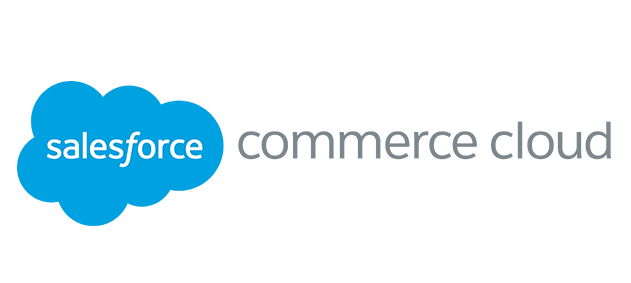
Salesforce Commerce Cloud is an excellent option for businesses of all sizes that want to upgrade their online operations, as it offers a tailored pricing model ranging from 1% up to 2% on sales. It can improve the user experience and operational efficiency in large-scale businesses through unified order management, wholesale operation streamlining and the ‘endless aisle’ customer shopping experience. Increased efficiencies in retail services are ensured with Salesforce’s specialized programming knowledge.
There could be additional costs associated with this platform since its optimal use requires prior web development experience and proficiency by those responsible for running it effectively. By using Salesforce commerce cloud companies will have access to features designed specifically for bettering their digital storefronts while still paying only what they should according to the nature of their business structure and needs.
Adobe Commerce (Magento)
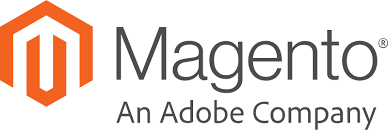
Adobe Commerce (Magento) offers a comprehensive PaaS solution for enterprise ecommerce, known for its flexible feature set and the ability to meet both B2B and B2C needs. It may require more technical expertise, which could lead to higher maintenance costs.
The platform stands out by providing seamless integration of shopping experiences across different channels plus the capacity to easily add brands or expand into new geographical regions with advanced functionalities encompassing security, graphical elements, as well as indexing data transfer processes and checkout procedures, allowing any enterprise business owner adequate customization capabilities meeting their specific demands in an efficient way.
This powerful tool grants companies all they need from an effective ecommerce operation giving them a reliable starting point when it comes down building up such successful enterprises structures successfully.
Oracle CX Commerce
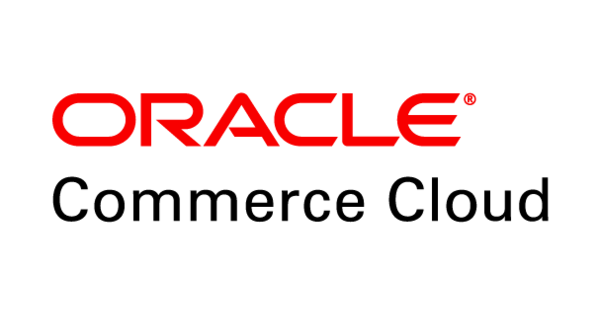
Oracle CX Commerce is an enterprise ecommerce platform which offers services to both B2C and B2B customers. It leverages data from customer relationship management (CRM) software and other corporate systems in order to deliver tailored experiences, making it a solid option for large-scale businesses that require dependability when managing their online presence. This solution incorporates AI-powered functionalities which can recommend products based on consumer behavior analysis, all of these features enhance the user experience significantly but could lead up operational expenses due to its complexity learning curve.
Shopify Plus
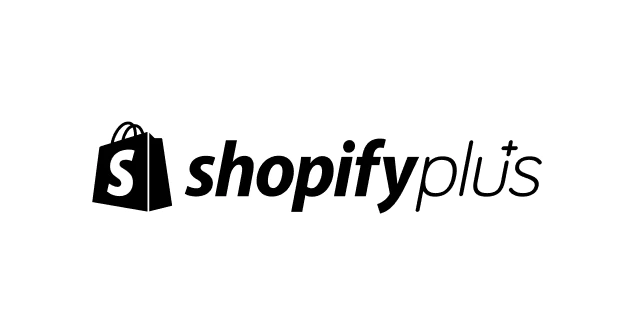
Shopify Plus is a high-end version of Shopify, designed for high-volume sellers. It offers features like multichannel selling, wholesale functionality, and internationalization. It’s highly customizable, allowing businesses to create unique online shopping experiences. Shopify Plus can handle millions of transactions per minute, making it ideal for large enterprises. It offers strong security measures, including SSL encryption, two-factor authentication, and fraud detection. Shopify Plus provides 24/7 customer service and dedicated account managers, as well as extensive resources to help users maximize their online store. Examples of businesses using Shopify Plus include Kylie Cosmetics, Gymshark, Allbirds, and Fashion Nova.
BigCommerce Enterprise
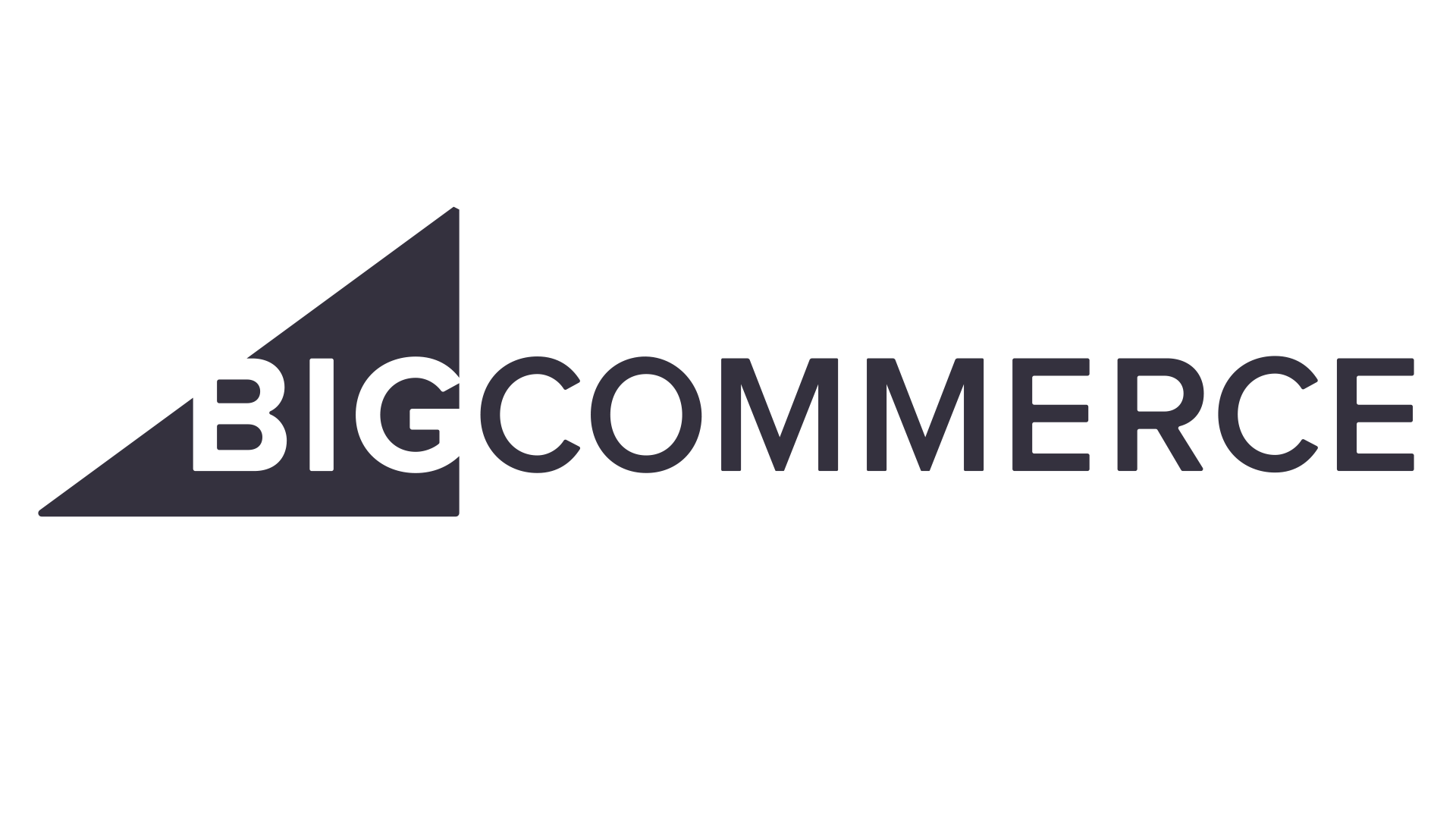
BigCommerce Enterprise is a well-regarded ecommerce solution for small to medium businesses. Pricing is based on online sales volume, and exact costs can be obtained through a custom quote from a sales representative. The platform offers priority support, a staging development environment, custom filtering options, and a dedicated account manager. It also supports headless commerce and cross-channel commerce and is compatible with numerous payment gateways. However, costs increase with sales volume, and a contract may be required. BigCommerce Enterprise guarantees 99.9% uptime and can handle significant traffic spikes. It is suitable for both B2B and B2C customers and offers features like bulk pricing and quote management. It also supports a wide range of integrations and API access for easy connectivity. Brands using BigCommerce Enterprise include SkullCandy, Sony, QVC, and Paul Mitchell.
Headless Ecommerce: A Future-Focused Approach
The headless ecommerce approach is increasingly popular in the world of ecommerce, allowing for greater customization and flexibility. This system separates out both customer-facing interfaces from back end operations – all managed via APIs – so that businesses can create entirely unique experiences for their customers while integrating different frontend systems to manage content more effectively.
The Rise of API-Driven Commerce
In the ecommerce industry, API-driven commerce is becoming increasingly popular. By making it easy open source ecommerce platform to integrate with mobile apps, social media websites and other platforms, APIs help improve both the customer experience as well as operational efficiency for ecommerce businesses.
API also assists companies in creating personalized experiences that are tailored specifically for each visitor by allowing them to create consistent services which address individual needs and preferences. Through this approach of developing cohesive solutions that put an emphasis on user friendliness, customers can expect a more enjoyable journey when engaging with online stores.
Selecting a Headless Platform for Custom Experiences
When selecting an ecommerce platform for enterprise use, several factors need to be taken into account such as custom experiences it can provide, its ability to streamline processes and potential growth capacity. It is important that businesses fully evaluate their technical capability and plans before opting for a headless system due to the increased costs of development resources associated with implementation of single platform. Considering all these components should help make sure companies select the most suitable solution suited to their needs.
The Cost Factor: Budgeting for an Enterprise Ecommerce Solution
When choosing an ecommerce platform, businesses must factor in the cost alongside its features and capabilities. Depending on the particular system, pricing structures can vary. Development fees as well as design and maintenance costs should also be anticipated.
Understanding Platform Pricing Models
When it comes to enterprise ecommerce platforms, there are a range of different pricing models. For example, SaaS-based solutions typically charge customers based on the number of users that access the software. On the other hand, certain license-based enterprises may involve a base fee for their enterprise e commerce platform that’s use as well as extra fees which depend upon revenue generation rates set by said business entity. This kind of cost structure can come with either monthly or yearly payments depending on what works best financially for both parties involved in using such an enterprise ecommerce platform solution.
Anticipating Additional Costs
When investing in an an enterprise software or ecommerce platform, it is essential to keep the additional costs that come with its base cost in mind. These expenses can range from development and design fees to long-term maintenance such as security patches, bug fixes or performance optimization. An enterprise ecommerce platform can be quite costly. The price of designing one typically ranges from $1,500-$6,000 while custom plugins for this type of service have a median fee between $500-$10k. As these prices accumulate over time, businesses should prepare financially before committing to purchasing an enterprise ecommerce solution.
Enhancing Ecommerce Functionality with Add-Ons and Extensions
Various plugins and extra features can be integrated into an ecommerce platform to optimize the store’s efficiency, productivity, as well as its capabilities. They also increase engagement with customers for greater success of the business.
Payment Gateways and Checkout Enhancements
Enhancing customer experience is heavily dependent on payment gateways and checkout optimization. Streamlining the entire process can significantly raise conversion rates, making customers happier by introducing a simplified and well-guided system of buying goods or services.
It includes easy navigation with minimal steps, clear directions for buyers to follow along quickly loading pages plus offering various transaction choices as well as ‘checkout as guest’ feature – all these will ensure an effortless approach to finishing purchase. By implementing such features, we would be able to improve shopping journey satisfaction rate in leaps and bounds for our customers.
Marketing Tools and Analytics
The success of an ecommerce business depends on making use of marketing tools and analytics to drive growth. These strategies can help track customer activities such as product impressions, promotions, and sales data for insight into their behavior in order to optimize performance.
Integrating with a platform enables centralizing the management of customer data, which facilitates efficient tracking and execution of more effective campaigns through varied methods.
Mastering Multichannel Sales with Enterprise Platforms
The utilization of enterprise platforms is becoming increasingly significant as far as multichannel sales in the ecommerce sector go. These resources enable businesses to have control over their business dealings on a variety of different channels, like online websites, brick-and-mortar stores and even social media networks.
Unified Inventory for Multi-Store Management
For enterprise platforms handling multi-channel sales, unified inventory management is essential. By consolidating order processing and product listings across all channels, it enables companies to improve operations while maintaining consistency in their offerings.
The ability to manage stock between multiple stores and warehouses can streamline workflows as well as:
- Enable a precise planning for customer orders’ allocation/fulfillment;
- Give them real time insights into the status of their inventories over different sales outlets; – Streamlining Inventory control process ; , Lessen chances of underselling or outrunning supplies.
A combined system plays an important role here by making these benefits possible.
Integrating Social Media Channels for Expanded Reach
Integrating social media channels into an ecommerce platform can drastically broaden the reach of a business. Through these platforms, businesses are able to communicate directly with customers in order to raise brand recognition and redirect users back to their site. To make the most effective use of this strategy, it is important for companies to focus on more than simply increasing likes. Instead, they must strive to drive sales through such methods as uploading product catalogs onto relevant social media outlets that cater specifically for their target audience’s needs while attempting to convert followers into buyers whenever possible.
Mobile Commerce: Optimizing for the On-the-Go Consumer
As mobile usage rises in the digital age, companies must revamp their ecommerce platforms to take advantage of on-the-go customers. Nowadays, more and more shoppers are using their cell phones for shopping online, so businesses should adjust accordingly in order to keep up with this increasing trend.
Ensuring a Mobile-Friendly Shopping Experience
In the digital age, providing customers with an optimized and mobile-friendly ecommerce experience is essential. To achieve this goal, businesses should ensure that their ecommerce website consists of: a responsive design compatible with different device sizes, seamless integration across multiple channels, carefully designed navigation tools suitable for thumbs use. Strategically placed CTAs (Calls to Action); concise text content complemented by adjustable layout elements plus improved page loading speeds through compressed images and other speed optimization methods such as testing time response in order to reduce server delays or creating staging sites prior to launch.
Mobile Apps vs. Responsive Design
Businesses should consider both mobile apps and responsive design to optimize the mobile shopping experience. The use of a personalised shopping app can lead to increased customer loyalty, better brand recognition, more easy access to purchase history records and higher conversion rates. In terms of responsively designed websites. They offer up adaptation in their layout for varying devices with various sizes together with improved search engine optimization and visibility – all these leading to an enhanced user experience on cellular gadgets specifically.
Deciding on the Right Enterprise Ecommerce Platform
When selecting the appropriate enterprise ecommerce platform, there are various elements that should be taken into account such as technical capabilities and customer experience. This means not only obtaining an option that meets your business needs, but providing shoppers with a smooth shopping journey too. Finding the right enterprise ecommerce can enhance both user engagement and satisfaction.
Technical Considerations for Web Developers
When selecting an ecommerce platform, web developers must think about a variety of technical matters. These include the customizability offered by different platforms, what programming languages are necessary for them to understand and any system prerequisites that come with launching each one.
For example, Salesforce Commerce Cloud requires knowledge in Apex and B2C Commerce JavaScript while Adobe Commerce (Magento) entails significant effort to learn as well as potentially very high operational costs. Consequently, businesses should consider their specific tech needs plus projected growth before deciding on a particular solution.
Prioritizing Customer Experience and Engagement
When selecting an ecommerce platform for their business, customer experience and engagement should be given top priority alongside technical capabilities. The overall user journey with the brand can have a major bearing on future sales figures as well as loyalty levels – two factors critical to driving long-term company growth.
Engaging customers is paramount if businesses wish to cultivate repeat custom and secure lasting support from loyal clients. Essential components of maintaining a strong competitive advantage in any market today.
Summary
Choosing the correct enterprise ecommerce platform is critical for any sizeable business. This powerful tool enables efficient handling of stock, orders and CRM integration as well as ties into third-party apps. Thus allowing companies to optimise their processes and provide customers with an enjoyable shopping experience. Businesses must consider all factors such as scalability, security support, when selecting a best ecommerce platform that best meets their needs and ambitions while providing secure technical abilities necessary for success in online ventures.
Frequently Asked Questions
What is the best enterprise eCommerce platform?
When looking for the best enterprise eCommerce platform, be sure to evaluate each option based on your business requirements. There are an array of 10 shortlisted platforms as well as other top choices that should not go unmentioned – all without any specific ranking in mind.
What are enterprise eCommerce platforms?
Enterprise eCommerce platforms have an advantage over other solutions due to their expansive capacity for inventory management, customer relationship management and ability to manage vast quantities of sales. This makes them suitable specifically for bigger enterprises looking to integrate a comprehensive ecommerce platform into their operations.
What is the most widely used eCommerce platform?
Shopify takes the lead in ecommerce platform usage, accounting for 28,81% of all websites among the top 1 million by traffic globally.
In a distant second is WooCommerce with its 18.19%.
How do I choose an enterprise eCommerce platform?
When it comes to selecting an enterprise eCommerce platform, take into account your business needs, its transfer abilities and the expertise of your crew. To make a sound decision self hosted platform, evaluate areas such as price point, connections with other systems and customer service options.
What is the role of enterprise ecommerce platforms in large businesses?
An enterprise ecommerce platform is pivotal in big organizations, as it enables them to unify the frontend sales and backend functions for a smooth shopping experience. By doing so, these platforms provide immense value to both businesses and customers alike.










